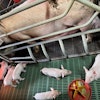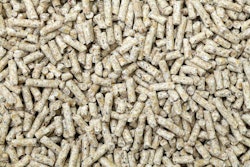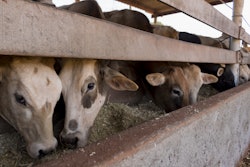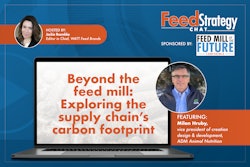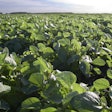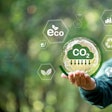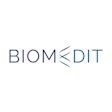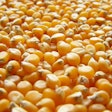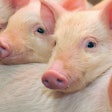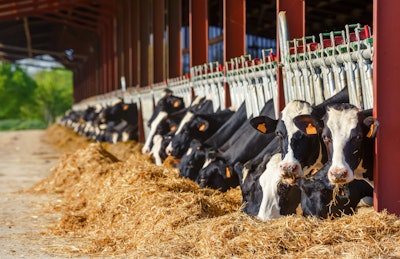
The U.S. Department of Agriculture National Institute of Food and Agricultural Sciences awarded one of two grants totaling US$10 million to reduce livestock methane emissions to Nicolas DiLorenzo, animal sciences professor at North Florida Research and Education Center, University of Florida.
DiLorenzo’s grant is for US$5 million and focuses on reducing the amount of methane cows produce. DiLorenzo is heading a multidisciplinary team including livestock nutritionists, chemists and microbiologists. Their work will create livestock feed additives to reduce the amount of methane produced during the digestive process.
These researchers hope to reduce a minimum of 25% of U.S. methane emissions, an amount equivalent to the total annual emissions produced by the state of Nebraska.
“We are very excited about this opportunity to work at the forefront of one of the greatest challenges that animal agriculture is facing: decreasing the carbon footprint of livestock systems,” DiLorenzo said. “This project stems from years of work, where many former graduate students from our team were instrumental in developing the preliminary data needed to move forward.”
DiLorenzo and team plan to identify and produce molecules that will work against the methane-producing microorganisms present in cattle digestive tracts. These molecules will then be tested as additives to the diets of research cattle herds at the University of Florida, Auburn University and Clemson University. Researchers will assess how these additives affect cattle digestion and methane production.
With the looming challenge of feeding 9 billion people by 2050, this project is an imperative piece of the climate-smart agriculture solution.
The projects are part of a priority mission from the federal government for the 2023 fiscal year as part of the Agriculture and Food Research Initiative, the nation’s flagship competitive grants program in the food and agricultural sciences. The goal of decreasing methane emissions from cows and other ruminants was funding as part of the U.S. government’s response in alignment with the Global Methane Pledge, which President Joe Biden made in September 2021 as a part of tackling the sources of climate change.

